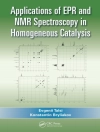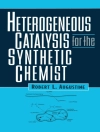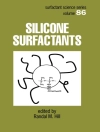HERBAL SUPPLEMENTS
An evenhanded study of pharmacological interactions between Western drugs and herbal supplements
Today, a significant percentage of Americans turn to complementary and alternative medicine practices. Despite their popularity and wide use, these products do not undergo the same pre-market testing for safety and efficacy that is required of pharmaceuticals. In Herbal Supplements: Efficacy, Toxicity, Interactions with Western Drugs, and Effects on Clinical Laboratory Tests, editors Amitava Dasgupta and Catherine Hammett-Stabler present a comprehensive introduction to both safe and unsafe herbal supplements. The book emphasizes the pharmacological interactions identified between Western drugs and herbal supplements, and the effects of herbal supplements on clinical laboratory tests.
Herbal Supplements provides a guide to the interpretation of abnormal test results in otherwise healthy subjects due to use of herbal remedies. Focusing on interactions between herbals and pharmaceuticals, sources of contamination in herbal supplements, and analytical techniques used in the investigation of herbal remedies, the book details:
* Pharmacological interactions between Western drugs and herbal supplements
* Effects of herbal supplements on clinical laboratory tests
* Key interactions between herbal supplements and various pharmaceutical drugs
* Medicinal plants and toxic effects
* Contamination of herbal supplements from metals, pharmaceuticals, and plant poisoning
* Analytical techniques, including immunoassays, used in the investigation of herbal remedies
Unbiased and literature-based, this text offers toxicologists, clinical chemists, analysts, and pharmacologists a no-nonsense take on the efficacy, toxicity, and drug interactions of herbal supplements and medicines.
สารบัญ
Preface xi
Contributors xiii
Part I Introduction and Overview 1
1 Introduction to Complementary and Alternative Medicine 3
Catherine A. Hammett-Stabler
2 Relatively Safe Herbal Remedies 19
Angela M. Ferguson and Uttam Garg
3 Risk of Toxicity Associated with Unregulated Herbal Products 45
Steven W. Cotten
Part II Effects of Herbal Remedies On Specific Organ Systems 73
4 Herbal Medicines with Immunomodulatory Effects 75
Jeffrey K. Actor
5 Kelp and Thyroid Function 125
Bruce Rosenzweig
6 Herbal Remedies and the Patient with Chronic Kidney Disease 135
Mariana S. Markell
7 Abnormal Liver Function Tests Due to Hepatotoxic Herbs 155
Amitava Dasgupta and Catherine A. Hammett-Stabler
8 Homeopathic Medicine: Principle, Effi cacy, and Toxicity 169
Amitava Dasgupta
9 Indian Ayurvedic Medicines: An Introduction 193
Amitava Dasgupta
10 Tradition and Perspectives of Greco-Arab and Islamic Herbal Medicine 209
Bashar Saad and Omar Said
11 Licorice and Laboratory Tests 255
Salvador F. Sena
Part III Drug Interactions 273
12 Drug Interactions with St. John’s Wort 275
Matthew D. Krasowski and John L. Blau
13 Drug-Herb Interactions in Patients with HIV/AIDS 291
Natella Y. Rakhmanina and John N. van den Anker
14 Interactions between Fruit Juices and Drugs 305
Amitava Dasgupta
15 Drug Interactions with Ginkgo Biloba and Ginseng 321
Ashok Tholpady and Semyon A. Risin
16 Drug Interactions with Garlic and Ginger Supplements 333
Charbel Abou-Diwan and James Ritchie
Part IV Contamination 351
17 Heavy Metal Toxicity and Herbal Remedies 353
Christine L. H. Snozek and Loralie J. Langman
18 Adulteration of Herbal Remedies with Conventional Drugs: Role of the Clinical Laboratory 369
Uttam Garg and Angela M. Ferguson
19 Beyond Herbals: An Introduction to Poisonous Plants 387
Catherine A. Hammett-Stabler
Part V Analytical Implications 405
20 Interferences of Herbal Remedies with Immunoassays for Therapeutic Drugs: Focus on Digoxin 407
Amitava Dasgupta
21 Role of the Clinical Laboratory in Detecting Plant Poisoning 425
Ronald W. Mc Lawhon
Index 443
เกี่ยวกับผู้แต่ง
AMITAVA DASGUPTA is a Professor in the Department of Pathology and Laboratory Medicine at the University of Texas Medical School at Houston and the director of clinical chemistry, toxicology, and point of care testing at the Memorial Hermann Hospital, the main teaching hospital of the medical school. He is a Diplomate of the American Board of Clinical Chemistry and a prolific author and editor.
CATHERINE A. HAMMETT-STABLER is a Professor in the Department of Pathology and Laboratory Medicine at the University of North Carolina at Chapel Hill. She is also the Director of the Core Laboratory of the Mc Lendon Clinical Laboratories, UNC Health Care. Dr. Hammett-Stabler has authored numerous peer-reviewed articles, book chapters, and books.












